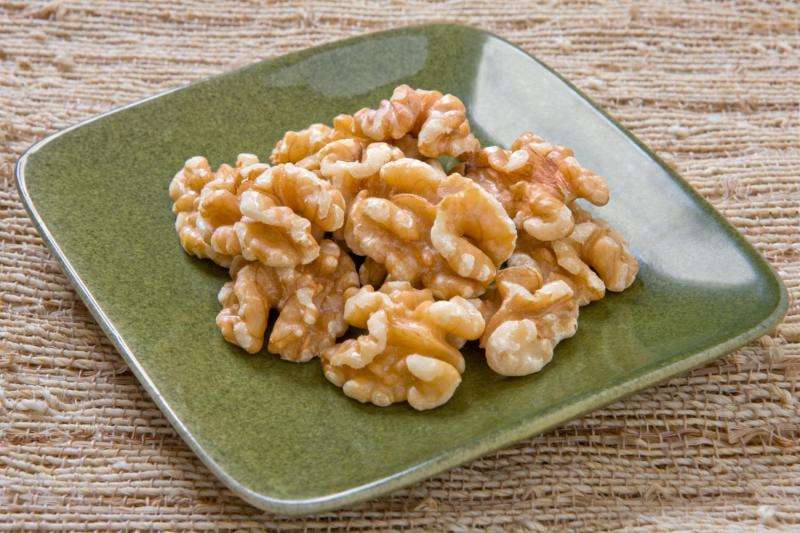Study finds tree nut consumption may lower risk of cardiovascular disease

A new study published in the American Journal of Clinical Nutrition found that consuming tree nuts, such as walnuts, may lower the risk of cardiovascular disease.1 After conducting a systematic review and meta-analysis of 61 controlled trials, one of the authors, Michael Falk, PhD, Life Sciences Research Organization, found that consuming tree nuts lowers total cholesterol, triglycerides, LDL cholesterol, and ApoB, the primary protein found in LDL cholesterol. These are key factors that are used to evaluate a person's risk of cardiovascular disease. Walnuts were investigated in 21 of the 61 trials, more than any other nut reviewed in this study.
"Our study results further support the growing body of research that tree nuts, such as walnuts, can reduce the risk of cardiovascular diseases," said Dr. Falk. "Tree nuts contain important nutrients such as unsaturated fats, protein, vitamins and minerals. Walnuts are the only nut that provide a significant amount (2.5 grams per one ounce serving) of alpha-linolenic acid (ALA), the plant-based form of omega-3s."
Beyond finding that tree nuts lower total cholesterol, triglycerides, LDL cholesterol and ApoB, researchers also found that consuming at least two servings (two ounces) per day of tree nuts, such as walnuts, has stronger effects on total cholesterol and LDL. Additionally, results showed that tree nut consumption may be particularly important for lowering the risk of heart disease in individuals with type 2 diabetes.
Of 1,301 articles surveyed, 61 trials met eligibility criteria for this systematic review and meta-analysis, totaling 2,582 unique participants. Trials directly provided nuts to the intervention group rather than relying solely on dietary advice to consume nuts. The dose of nuts varied from 5 to 100g/day and most participants followed their typical diet.
More than two decades of research has shown that walnuts may help lower cardiovascular risk factors by decreasing LDL (bad) cholesterol by 9-16%2 and diastolic blood pressure by 2-3 mmHg2, as well as reducing total cholesterol2,3,4, raising HDL cholesterol2,3, reducing inflammation as measured by C-reactive protein5, and improving arterial function2. These factors are major contributors to heart disease risk, and reducing them is a critical step toward a healthier heart. In addition to providing omega-3s, walnuts also deliver a convenient source of fiber (2 grams per ounce) and protein (4 grams per ounce).
More information: L. C. Del Gobbo et al. Effects of tree nuts on blood lipids, apolipoproteins, and blood pressure: systematic review, meta-analysis, and dose-response of 61 controlled intervention trials, American Journal of Clinical Nutrition (2015). DOI: 10.3945/ajcn.115.110965
Kris-Etherton P. Walnuts decrease risk of cardiovascular disease: a summary of efficacy and biologic mechanisms. J Nutr. 2014; 10.39:2S-8S.
Sabaté J, Fraser GE, Burke K, Knutsen SF, Bennett H, Lindsted KD. Effects of walnuts on serum lipid levels and blood pressure in normal men.N Engl J Med. 1993; 328:603-7.
Banel HK, Hu FB. Effects of walnut consumption on blood lipids and other cardiovascular risk factors: a meta-analysis and systematic review. Am J ClinNutr. 2009 Jul;90(1):56-63.
Zhao G, Etherton TD, Martin KR, et al. Dietary alpha-linolenic acid reduces inflammatory and lipid cardiovascular risk factors in hypercholesterolemic men and women. J Nutr 2004; 134: 2991-2997.


















